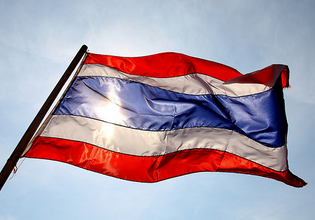Today, the ICJ and Amnesty International submitted recommendations to the Ministry of Justice that changes be made to a new law under consideration by the Cabinet, in order to bring it in line with Thailand’s international legal obligations.
The submission came in response to a request by the Ministry for feedback on the Draft Prevention and Suppression of Torture and Enforced Disappearances Act (‘Draft Act’).
The ICJ and Amnesty International welcome the Thai government’s commitment to criminalize torture and enforced disappearances.
The Draft Act currently addresses many existing gaps in Thailand’s current legal framework.
However, the organizations consider that further amendments are needed to address significant shortcomings in the Draft Act and ensure Thailand’s compliance with international treaties on torture and enforced disappearance and international standards.
Recommendations by the ICJ and Amnesty International addressed the following concerns:
- The absence within the Draft Act of key elements of the crimes of torture and enforced disappearance, as defined by international law;
- The absence of provisions concerning cruel, inhuman and degrading treatment or punishment (CIDT/P);
- The inadequacy of provisions establishing the inadmissibility of statements and other information obtained by torture, CIDT/P and enforced disappearance as evidence in legal proceedings;
- The inadequacy of provisions relating to modes of liability for crimes described in the Draft Act; and
- The shortcoming of provisions concerning safeguards against torture, CIDT/P and enforced disappearances.
The ICJ and Amnesty International urge Thailand to make it a top priority to address these and other concerns, and once they are addressed, to enact the law as soon as possible.
The urgent need to amend and enact the Draft Act is underscored by several NGO reports documenting the persistent use of torture and other ill-treatment by state security forces and the continued failure of the Thai authorities to hold accountable perpetrators of torture, other ill-treatment and enforced disappearances.
The ICJ and Amnesty International remain committed to providing any necessary assistance to the Thai government in amending the Draft Act or otherwise acting to prevent torture and enforced disappearances in Thailand.
In a letter accompanying the submission, the ICJ and Amnesty International also emphasized the crucial importance of maintaining sections within the current Draft Act providing that the prohibitions on torture and enforced disappearances apply in all circumstances, including states of emergency, and prohibiting the forcible transfer of persons to territories where they would face a real risk of torture or enforced disappearances (refoulement).
Background
Thailand is a state party to the International Covenant on Civil and Political Rights and the Convention against Torture and other Cruel, Inhuman or Degrading Treatment or Punishment, and has signed, but not yet ratified, the International Convention for the Protection of All Persons from Enforced Disappearance.
The UN expert bodies overseeing the implementation of these treaties have consistently called upon states parties to criminalize torture and enforced disappearance as specific crimes.
On 15 November 2016, Thailand replied to a List of Issues, identified by the UN Human Rights Committee’s noting that it was in the process of passing the Draft Act which would “provide clear definition and set up specific offence on torture to be in line with the terms set forth under CAT” and “serve as an implementing legislation for ICPPED.”
It also asserted that the Draft Act “aims to strengthen the prevention, suppression, and prosecution mechanism and to ensure remedy for victims as well as address the problem of misuse, and abuses of power by government authorities with regard to torture and enforced disappearances.”
In February 2017, the National Legislative Assembly (NLA) announced it would not enact the Draft Act, which was produced by the Ministry of Justice in consultation with non-governmental organizations and other civil society actors.
In March 2017, at the UN Human Rights Committee’s review of Thailand’s compliance with the ICCPR, Thailand confirmed that the Draft Act “had been submitted to the National Legislative Assembly, which had requested the Cabinet to further review the bill, with a view to introducing amendments and launching a public consultation process.”
Contact:
Kingsley Abbott, ICJ Senior International Legal Adviser for Southeast Asia, t: +66 94 470 1345 e: kingsley.abbott@icj.org
Read also
Joint Letter to the Thai Government
Download
Thailand-Torture and ED-Advocacy-nonlegal submission-ENG (Submission in English, pdf)
Thailand-Torture ED Bill-News-THA (statement in Thai, pdf)
Thailand-Torture and ED-Advocacy-nonlegal submission-THA (Submission in Thai, pdf)




